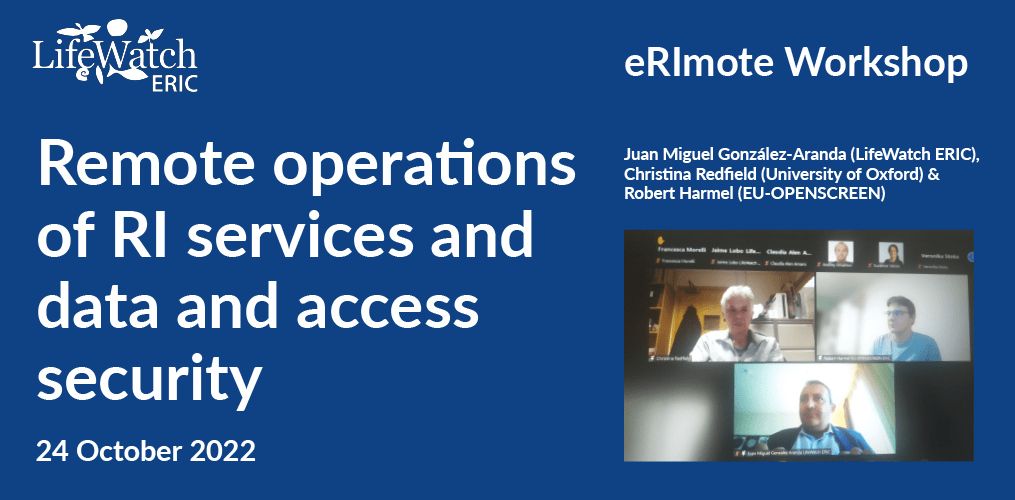
The eRImote project kicked off in June this year, devoted to considering solutions for digital and remote service provision across Research Infrastructure domains and looking for transferable practices and new developments that will improve accessibility and resilience. The second eRImote workshop, on 24 and 25 October 2022, focused on Remote Operations of RI services, including quality management, and questions of data and access security. Coherent with eRImote’s mission the workshop was offered remotely.
The final panel discussion on the first day was moderated by Johanna Bischoff of Euro BioImaging and featured LifeWatch ERIC Chief Technology Officer Juan Miguel González-Aranda, alongside Christina Redfield from the University of Oxford and Robert Harmel of EU-OPENSCREEN. Dr González-Aranda’s presentation was entitled “Remote Operations of Infrastructure Services”, but the logic built up from a compelling and disturbing overview of the biodiversity crisis we all face.
Referencing IUCN Red List categories of endangered species data and extinctions since 1500, the presentation emphasised the essential importance of addressing the big environmental challenges by supporting knowledge-based strategic solutions to biodiversity loss. Only though large-scale monitoring can we understand the ecosystem functions and services that nourish life and benefit humans.
LifeWatch ERIC is the structural tool within the European Research Area that supplies scientific knowledge complete enough to support political decision-making. Combining datasets, service and tools in state-of-the-art virtual research environments, LifeWatch ERIC’s Big Data, AI, HPC-Grid Cloud computing, backed with Blockchain, working with other Research Infrastructures, can deliver the goods.